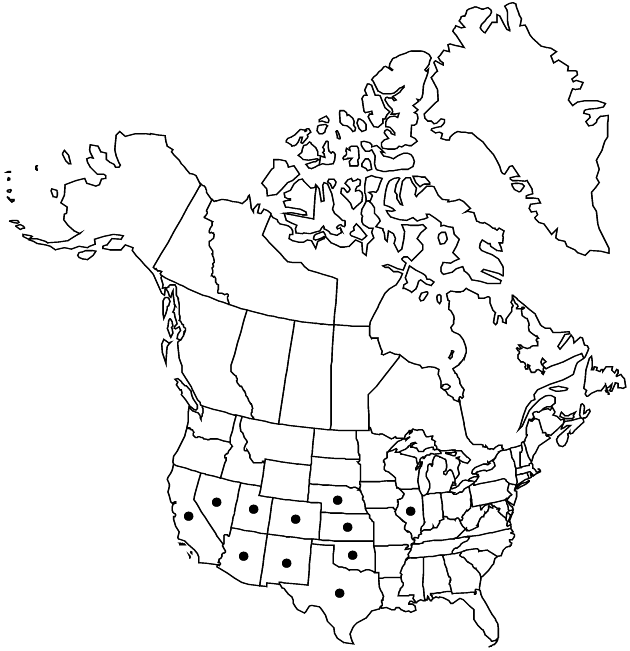Helianthus ciliaris
in A. P. de Candolle and A. L. P. P. de Candolle, Prodr. 5: 587. 1836.
Perennials, 40–70 cm (rhizomatous or with creeping roots, often forming extensive colonies). Stems decumbent to ± erect, glabrous or glabrate (glaucous). Leaves cauline; mostly opposite; sessile; blades (often bluish green, 1-nerved or 3-nerved) linear to lanceolate, 3–7.5 × 0.5–2.2 cm, bases ± cuneate, margins entire or serrate (usually ciliate and undulate), faces glabrous or glabrate to hispid. Heads 1–5. Peduncles (1–) 3–13 cm. Involucres hemispheric, 12–25 mm diam. Phyllaries 16–19, ovate to lanceovate, 3–8 × 2–3.5 mm, (margins ciliate) apices obtuse to acute, abaxial faces glabrate to ± strigose, not glanddotted. Paleae 7–7.5 mm, subentire to 3-toothed (apices obtuse to acute, hairy, glanddotted). Ray-florets 10–18; laminae 8–9 mm. Disc-florets 35+; corollas 4–6 mm, lobes reddish; anthers brownish red, appendages brownish red (style-branches yellow). Cypselae 3–3.5 mm, glabrous; pappi of 2 aristate scales 1.2–1.5 mm. 2n = 68, 102.
Phenology: Flowering summer–fall.
Habitat: Roadsides, ditches, cultivated fields, open drainage areas
Elevation: 10–2600 m
Distribution

Ariz., Calif., Colo., Ill., Kans., Nebr., Nev., N.Mex., Okla., Tex., Utah, Mexico (Chihuahua), Mexico (Coahuila), Mexico (Durango), Mexico (San Luis Potosí), Mexico (Sonora), Mexico (Tamaulipas)
Discussion
Helianthus ciliaris is considered a noxious weed in some states. It can propagate vegetatively from detached pieces of rhizome and spread aggressively, especially in cultivated fields. It has been noted to occur in Idaho and Washington, where control measures have been taken to eliminate it.
Selected References
None.